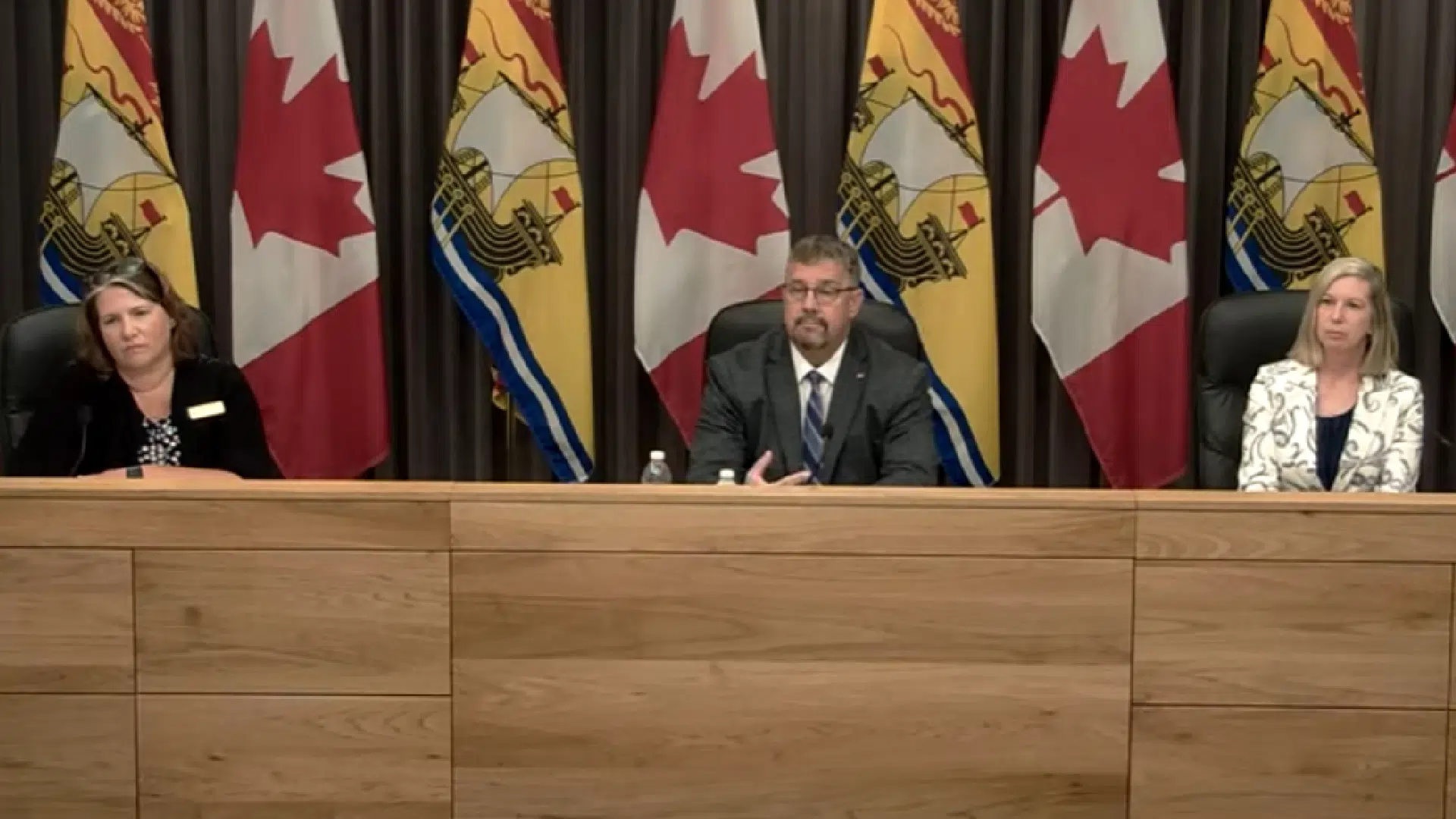New Brunswick will create a centre of excellence to help strengthen French language learning.
That was one of eight recommendations made by a steering committee to improve the anglophone education sector.
Dr. Tiffany Bastin is an assistant deputy minister with the Department of Education and Early Childhood Development and is one of the committee’s co-chairs.
Bastin said the Centre of Excellence for Language Learning will give students a chance to practice French outside of the classroom.
“There can be things like mentoring where a student could have a French language mentor who they get on with, they chat in French, they do maybe experiential learning,” Bastin said during a news conference Wednesday.
The centre, which would have a full-time French language educator, would also be a central hub for educators who want direct access to experts and resources in one area.
Another one of the recommendations made by the committee is having contract supply teachers based on district needs.
Education Minister Bill Hogan said as it stands, supply teachers are not guaranteed which school they will be going to each day.
Contract supply teachers, or floating teachers, would get to become part of a particular school or group of schools.
“If there’s no teacher that’s absent, then we’ll have that teacher available to work with individual students or small groups of students to help them catch up and whatever they need to do to help improve their learning,” said Hogan.
According to the committee, this change will allow supply teachers to become more involved with staff planning and training and will support teacher development and retention by ensuring these teachers are in a school consistently.
Other actions being taken based on the short-term recommendations made by the committee include:
- Adding teaching positions to support literacy and numeracy development in kindergarten to Grade 5.
- Hiring more behaviour intervention workers to encourage positive learning environments in schools.
- Establishing a working group to look at how student profiles can be developed to help teachers better understand their students’ learning needs and interests.
- Analyzing the existing administrative workload for principals and resource teachers so more time can be spent supporting teachers and learners.
- Launching a new leadership strategy, NB Lead, to help ensure leaders are successful in their roles.
- Developing new learning modules for teachers related to de-escalation, co- and self-regulation and culturally responsive classrooms.
Hogan said the province will begin taking the actions in September but was unsure of the exact costs when asked by reporters.
“Some of it doesn’t cost much money at all,” he said, referring to reducing administrative workload for principals and resource teachers.
“The additional personnel, we already have the money in our budget to do that.”
The steering committee — made up of educators, students, the New Brunswick Teachers’ Association and other groups — is expected to make a set of longer-term recommendations in the fall.
All of the recommendations are based on engagement sessions held in May and June. Feedback has also been received from more than 3,000 New Brunswickers through an online survey, which is still open to the public.








